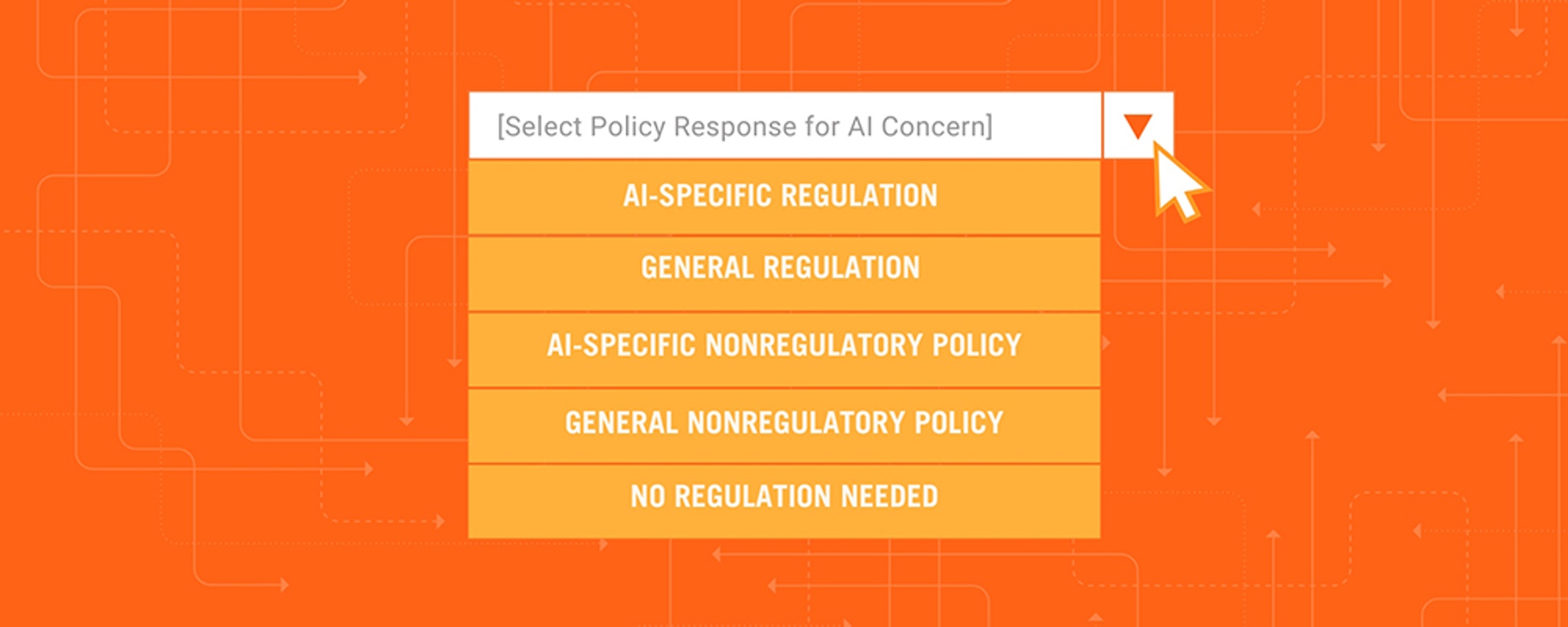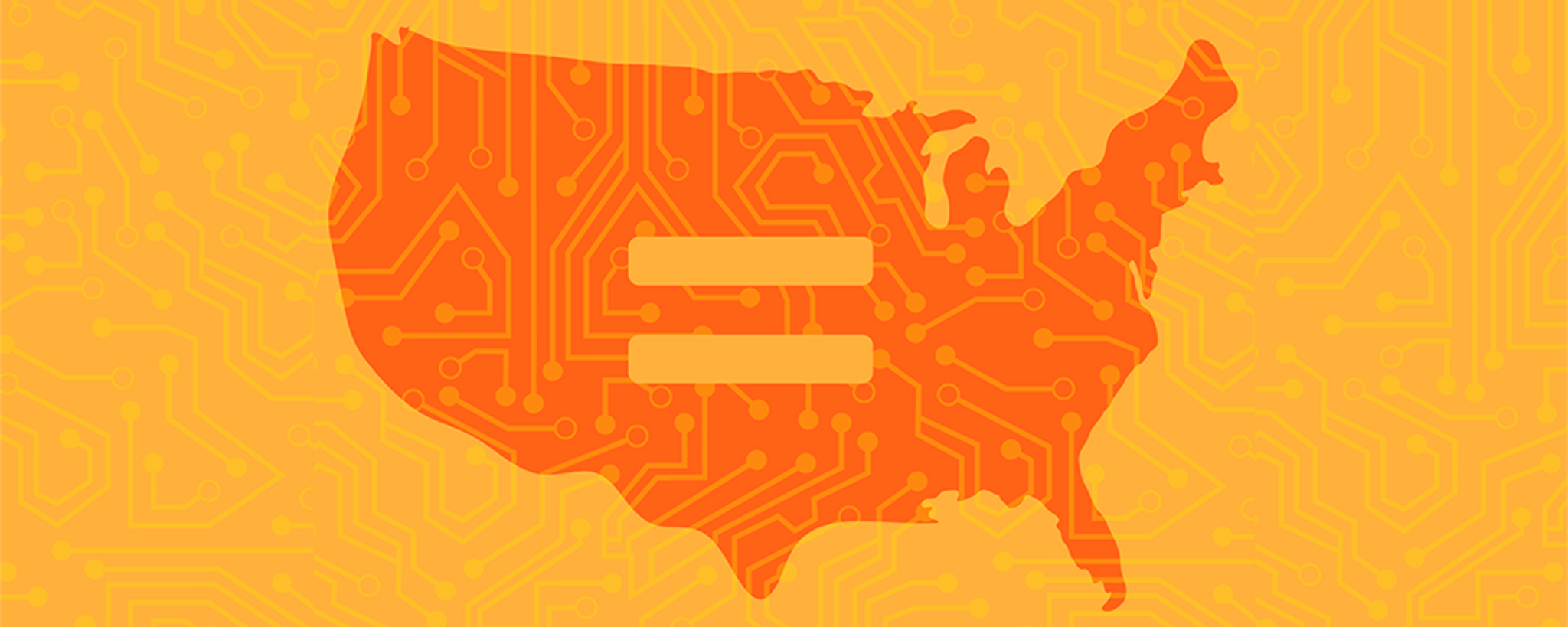Data Innovation
Navigate forward to interact with the calendar and select a date. Press the question mark key to get the keyboard shortcuts for changing dates.
Navigate backward to interact with the calendar and select a date. Press the question mark key to get the keyboard shortcuts for changing dates.
As every sector of the global economy and nearly every facet of modern society undergo digital transformation, ITIF advocates for policies that spur not just the development of IT innovations, but more importantly their adoption and use throughout the economy. ITIF’s Center for Data Innovation formulates and promotes pragmatic public policies designed to maximize the benefits of data-driven innovation in the public and private sectors.

Vice President and Director, Center for Data Innovation
Information Technology and Innovation Foundation
Read BioFeatured
More Publications and Events
May 13, 2025|Events
How Americans Feel About AI—and Why It Matters for Policy
Join ITIF's Center for Data Innovation and Public First for a timely discussion of new polling data exploring how U.S. public sentiment toward AI is evolving. The conversation will unpack where Americans see promise or peril, how their views have shifted over the past year, and what these perspectives mean for lawmakers, business leaders, and the future of AI policy.
April 22, 2025|Blogs
Unlocking the Promise of AI for the State Department
With the right infrastructure and vision, the United States can become a global leader in AI-enabled diplomacy. The State Department should seize this moment—not just to experiment with AI and increase organizational efficiency, but to embed AI at the core of how it conducts diplomacy in the 21st century.
April 17, 2025|Blogs
Europe’s GDPR Fines Against US Firms Are Unfair and Disproportionate
The magnitude of the total fines against U.S. companies is extraordinary. To put the amount in perspective, it is roughly the same as the GDP of Fiji. It could cover the cost of sending five rovers to explore Mars. It would be enough to build two new football stadiums in Washington, DC. It could even pay for every household in America to buy six dozen eggs.
April 11, 2025|Blogs
Three Steps Trump Should Take to Advance Government AI Adoption
The Office of Management and Budget (OMB) issued two memos aimed at accelerating AI adoption across the federal government. But that vision won’t materialize unless other parts of the administration stop pulling in opposite directions or failing to act altogether.
April 8, 2025|Events
Why the UK Needs a Broad Text and Data Mining Exception to Support AI Innovation
Watch now for the Center for Data Innovation's discussion on the potential consequences of the UK government’s proposed option and how creating a more permissive text and data mining exception would advance the UK’s goals of being competitive in AI without undermining the rights of creators.
April 8, 2025|Blogs
Protect Data Without Undermining Its Value
Congress should craft federal privacy legislation that protects consumers without undermining the responsible use of data that drives innovation, supports small businesses, and fuels economic growth. A balanced approach—emphasizing clear rules, transparency, and compliance over punitive enforcement—will safeguard privacy while preserving data’s value to society.
April 4, 2025|Blogs
CPSC Should Leverage AI to Modernize Product Safety
To modernize enforcement, the Consumer Product Safety Commission (CPSC) should use AI to analyze real-time and historical data, allowing it to predict and address risks in e-commerce supply chains before harm occurs.
March 30, 2025|Blogs
US AI Policy Is Stuck in Training Mode
U.S. AI policy prioritizes training compute while overlooking inference—the compute needed to deploy models effectively. As AI progress shifts toward optimizing inference, policymakers must adapt by supporting global deployment, refining export controls, and promoting energy-efficient AI to maintain U.S. competitiveness.
March 24, 2025|Blogs
Virginia’s AI Bill Is a Misfire
Virginia Governor Glenn Youngkin will decide on HB 2094, a flawed AI bill with inconsistent rules and unworkable enforcement. Signing it would add to a costly patchwork of state laws without improving outcomes.
March 14, 2025|Testimonies & Filings
Comments to the Office of Science and Technology Policy on the Development of an AI Action Plan
The Center for Data Innovation outlined seven policy priorities we believe to be most critical for the AI Action Plan, along with specific actions the administration should take.








